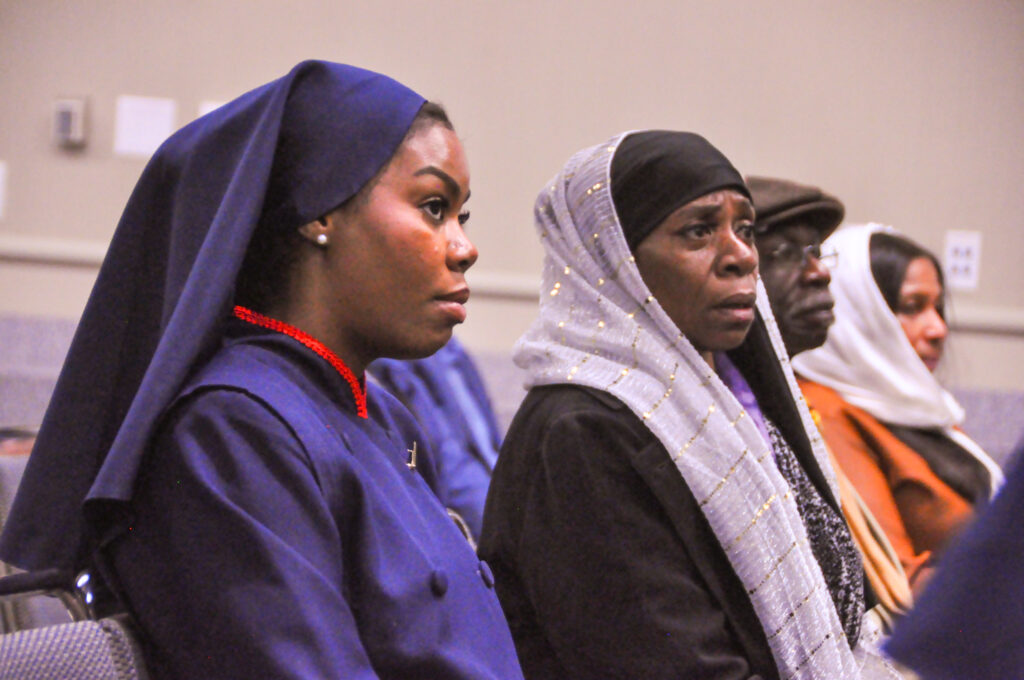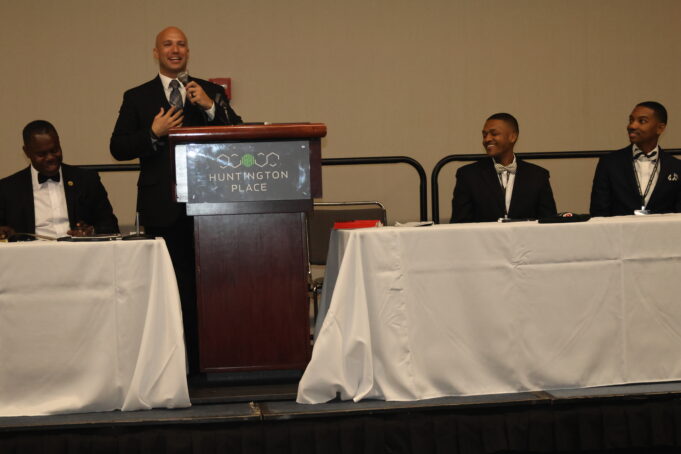DETROIT—The “Surviving in a Time of Famine and Want,” workshop during Saviours’ Day 2024 gave attendees tools by which they could beat the prophecies of famine and lack of resources. Communicating with a deserving sense of urgency, Brothers Randy Muhammad, Malachi
Muhammad, Patrick Muhammad, all out of Atlanta and Malik Inkatha from Chicago outlined simple roadmaps, and fielded questions engaging the audience. One such roadmap involved qualifying for grant assistance that could aid in drought impacted areas.
Other remedies included the creation of government track numbers qualifying an average home for actual farming grants for spaces no larger than the home’s front porch or windowsill.

Referencing the book “Our Saviour Has Arrived,” (chapter 39), by the Most Honorable Elijah Muhammad in “The Time and What Must Be Done,” lecture series, part 39 from the Honorable Minister Louis Farrakhan, Bro. Randy is credited with helping raise the chickens and other agricultural and farming projects on the grounds of The National Center at Nation of Islam headquarters in Chicago.
Bro. Randy once housed 600 chickens in his basement home in Chicago. He and his family now reside on their own farm in the state of Georgia. “We live in a very, very serious time right now,” he told the audience. He shared the Minister’s subject “Farming:
The Engine of our Natural Life,” from part 39, explaining, “you don’t have to have a farm if that’s not your thing, but you’re going to have to grow some food. And you are going to have to grow some food today,” he urged. “How many of you all have a garden?” Bro. Randy asked the audience.
“One of the driving forces I want you to think about as we go back home is, if you had to feed your family for 72 hours, getting back Monday or Tuesday, can you do it from your home?” asked Brother Patrick, also known as “The Principal Farmer.”

He heads an Agriculture Charter School in Atlanta. He and his wife, Ishtar, have 30-plus acres with a small percentage of it dedicated to cattle, farming, growing and distributing food. “For 72 hours” he continued, “Can you feed your family from your house?”
The question he asked allows people to accurately assess the household needs then go after those things that will make them secure. Food deserts are regions of the country that often feature large proportions of households with low incomes, inadequate access to transportation, and a limited number of food retailers providing fresh produce and healthy groceries for affordable prices. A food desert in urban terrain are areas where the nearest grocery store in any neighborhood is outside a radius of three miles.
Brother Malachi shared information about the National Resource Conservation Service and outlined how people can qualify for grants and how many of the grants are tailored to Blacks. “It’s a lot of information available that we just don’t know about and White farmers take advantage of all other grants and programs that we have no idea about, and we don’t apply for where being Black actually works more in your favor,” he said.
Brother Malik Inkatha learned about farming from Brother Randy by volunteering on his farm. “I’ve gone through a process to be made closer to nature and I’m in the city. It’s hard. It’s cold. It’s concrete. It’s dark. It’s like a cave. And I wanted to be able to expand, grow out and to be able to learn and connect,” he said.













